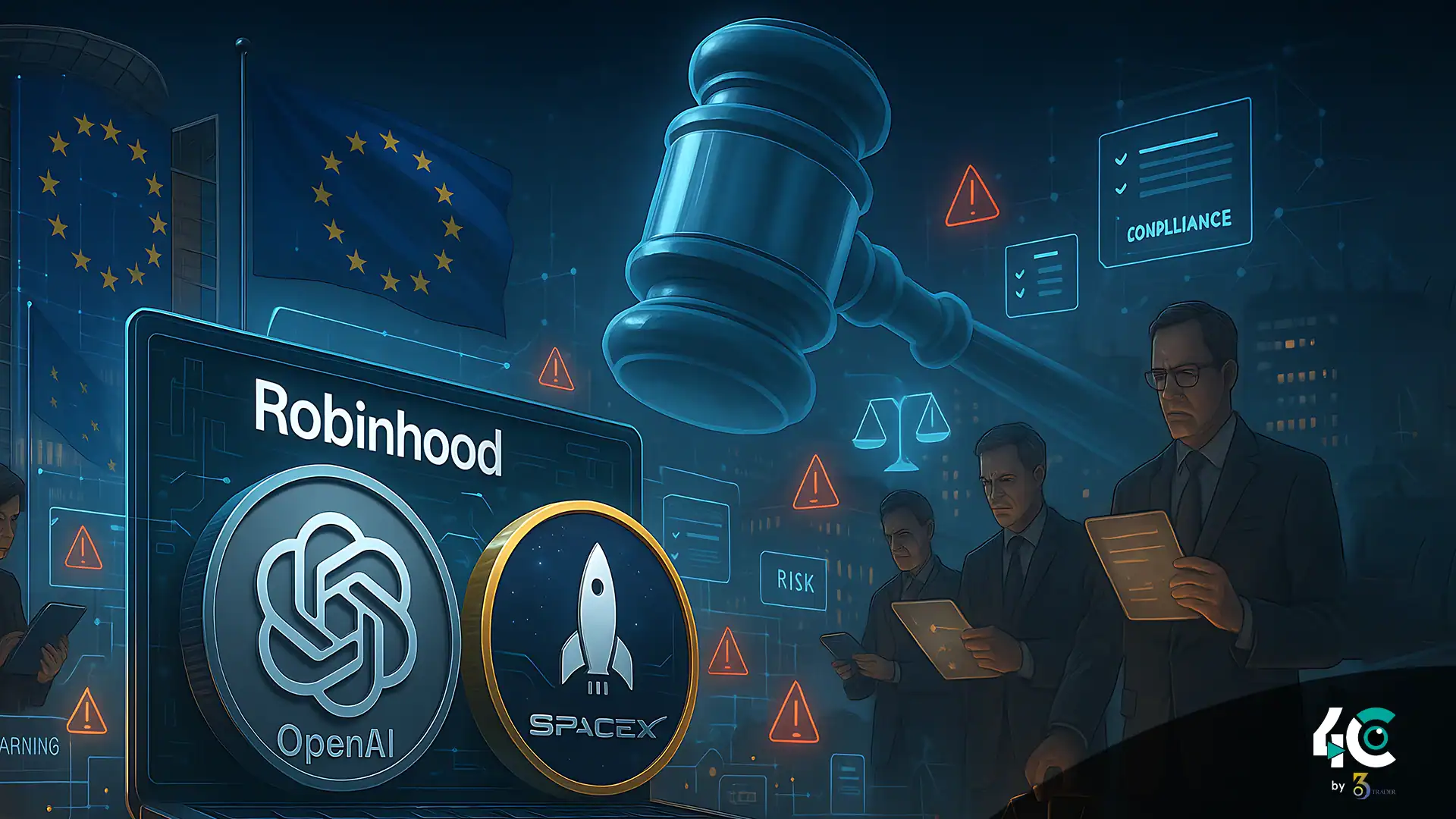EU Probes Robinhood’s Tokenized Securities Move
The brokerage Robinhood’s recent move into tokenized securities has already caught the attention of European Union regulators. This comes after warnings from OpenAI regarding the inappropriateness of the use of its name.
An uproar followed Robinhood’s listing of stock tokens on June 30 for EU investors. Some of the offerings included tokens related to private companies like OpenAI and SpaceX. According to Robinhood, these would provide retail users with “indirect exposure” to companies not typically accessible to small investors.
OpenAI Denies Any Connection
However, OpenAI was quick to respond with a public warning stating that these “OpenAI tokens” are not genuine, have no connection with the company, and do not confer ownership or equity. The AI firm made it clear that it has not collaborated with Robinhood and does not endorse the use of its name in this context.
“The transfer of OpenAI equity requires our approval. We did not approve any transfer,” the firm noted on X, advising users to be cautious.
Lithuania’s Central Bank Demands Answers
The Bank of Lithuania—an EU financial regulator responsible for overseeing Robinhood’s operations—has launched a probe into the matter. The bank reached out to Robinhood to clarify the structure of the tokens and how they are marketed to consumers.
According to bank spokesperson Giedrius Šniukas, “It will only be after receiving and assessing this information in relation to the specific instruments that we are able to assess.”
The regulator stressed that any communication with investors must be clear, fair, and not misleading, especially regarding complex products like tokenized equities.
Robinhood’s Position on the Tokens
Robinhood has not yet publicly responded to either the inquiry or OpenAI’s objections. However, the company previously described the stock tokens as derivative products linked to the value of Special Purpose Vehicles (SPVs) that the firm partially owns. These SPVs have a stake in companies like SpaceX and OpenAI and allow users to gain exposure without taking direct equity.
What Are Robinhood’s Stock Tokens?
Robinhood allows users to trade tokenized stocks to expand access to private markets. The firm’s blockchain-based tokens claim to create new opportunities for retail investors in companies not yet publicly listed.
However, analysts say these tokens are not equivalent to shares. Unlike traditional securities, they do not offer voting rights or dividends. Instead, they are synthetic assets or derivatives that track the performance of an underlying investment.
An analysis of Robinhood’s presentation at the EthCC conference by Galaxy Research revealed the tokens are positioned as a solution for indirect access to private equity.
Tokenization’s Growing Appeal—And Its Risks
Tokenized financial products are growing in popularity despite regulatory uncertainty. With use cases in private credit and U.S. equities, the global tokenization market is estimated to be worth over $24 billion.
Major firms like BlackRock and Franklin Templeton have entered the space, aiming to streamline operations and improve liquidity and accessibility. Still, much of the industry operates in a regulatory grey zone.
According to an expert at the recent “Tokenize This” conference in New York, tokenized stocks could become a trillion-dollar industry—but only if consumer protections and regulatory clarity are enforced.
Looking Ahead
Robinhood’s experiment with tokenized equities has sparked an important discussion about the legitimacy of digital financial products. As EU regulators act, this investigation could shape the future framework for marketing and regulating these instruments.
For now, investors in the EU are strongly advised to read the fine print and understand that Robinhood’s tokens linked to OpenAI and SpaceX—despite the names—do not confer actual ownership or shareholder rights.



























